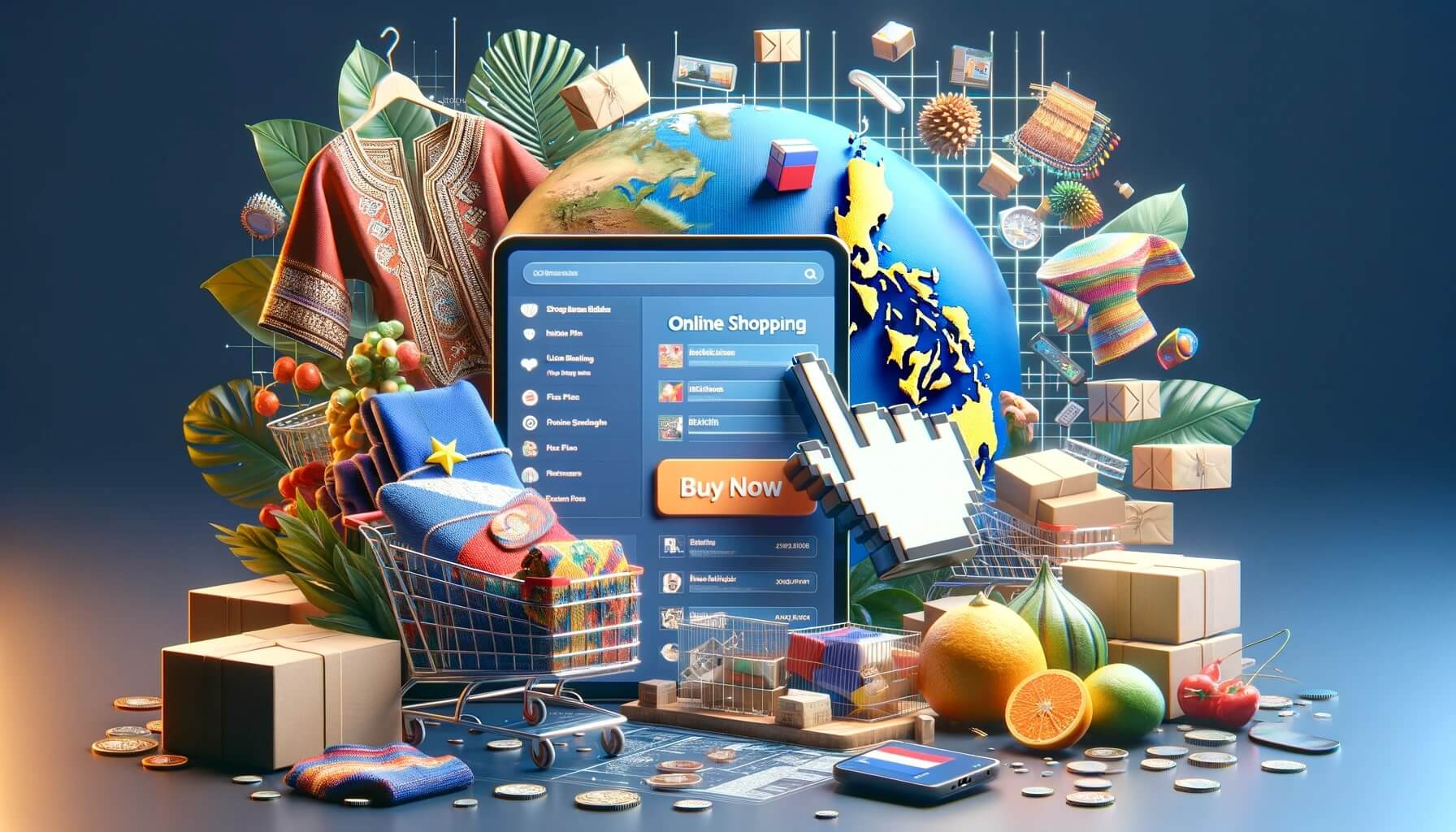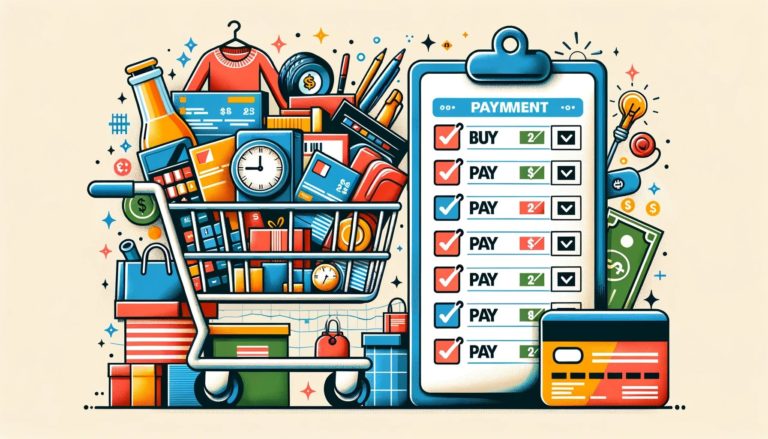Online Shopping In The Philippines: Ultimate Guide

Are you tired of dealing with long queues and crowded malls when shopping in the Philippines? Look no further! Online shopping in the Philippines has revolutionized the way people buy goods and services, offering convenience and accessibility at your fingertips.
With just a few clicks, you can browse through a wide range of products, compare prices, and have your purchases delivered right to your doorstep. From trendy fashion pieces to the latest gadgets, online shopping platforms in the Philippines cater to all your needs and preferences. So sit back, relax, and get ready to discover the world of online shopping in the Philippines.
Overview of Online Shopping in the Philippines
Online shopping in the Philippines has experienced significant growth in recent years, powered by the rapid adoption of e-commerce platforms and increased internet accessibility. This shift in consumer behavior has been driven by a number of factors, including convenience, wider product selections, and the ability to compare prices and find better deals.
As a result, several key players have emerged in the Philippine e-commerce market, providing consumers with a variety of online shopping platforms to choose from. However, with this growth also come concerns regarding security and privacy, as well as the need for consumer protection laws and policies. It is important to understand the online shopping habits of Filipino consumers, as well as the challenges and future trends that may shape the e-commerce landscape in the Philippines.
Growth of E-commerce in the Philippines
The Philippines has seen a significant rise in e-commerce activities over the past few years. With advancements in technology and increased internet accessibility, more Filipinos are embracing the convenience of online shopping. According to a report by PricewaterhouseCoopers (PwC), the Philippine e-commerce market is projected to grow at a compound annual growth rate (CAGR) of 18.1% from 2020 to 2024, reaching a market value of US$13.8 billion by 2024. This growth can be attributed to various factors that have propelled the popularity of online shopping in the country.
Factors Driving the Growth of Online Shopping
One of the key factors driving the growth of online shopping in the Philippines is the convenience it offers to consumers. With just a few clicks, Filipinos can browse through a wide range of products and make purchases from the comfort of their own homes. This eliminates the need to commute to physical stores and spend hours searching for the perfect item. Additionally, online shopping provides accessibility to products that may not be readily available in local brick-and-mortar stores, allowing consumers to explore a wider range of options and find unique items.
Another factor fueling the growth of online shopping is the ability to compare prices and find better deals. With numerous online platforms offering similar products, consumers have the advantage of comparing prices across different websites and making informed decisions. This promotes healthy competition among e-commerce retailers, ultimately benefiting consumers by driving down prices and encouraging better deals.
Key Players in the Philippine E-commerce Market
The Philippine e-commerce market is bustling with a variety of platforms catering to different consumer needs. Among the most prominent players in the industry are Lazada, Shopee, Zalora, Zilingo, and Metrodeal.
Lazada, founded in 2012, has quickly become one of the leading e-commerce platforms in the Philippines. It offers a wide range of products, including electronics, fashion, and home appliances. Lazada provides a user-friendly interface, reliable customer service, and secure payment options, making it a popular choice among Filipino consumers.
Shopee, established in 2015, has gained significant traction in the Philippine market. It distinguishes itself through its in-app features, such as live streaming and social commerce, allowing users to interact with sellers in real-time. With its extensive product offerings and competitive prices, Shopee has emerged as a top contender in the e-commerce scene.
Zalora specializes in fashion and lifestyle products, providing Filipinos with a seamless online shopping experience for clothing, accessories, beauty products, and more. With its focus on trendy and affordable fashion, Zalora has captured the attention of fashion-conscious consumers in the Philippines.
Zilingo, on the other hand, caters to the fashion needs of both men and women, offering a diverse selection of clothing, footwear, accessories, and beauty products. It has gained popularity among the younger demographic due to its trendy and affordable offerings.
Metrodeal is a well-known platform that offers daily deals and discounts on a wide array of products and services. It attracts bargain hunters who are looking for great deals on travel, dining, wellness, and other leisure activities.
Benefits of Online Shopping
Online shopping provides numerous benefits that have contributed to its popularity among Filipino consumers. One of the key advantages is the convenience and accessibility it offers. With online shopping, you can browse through a vast selection of products, make purchases, and have them delivered right to your doorstep, saving you time and effort. Whether you live in a bustling city or a remote province, you can access online stores and shop at any time, making the entire experience more convenient than traditional shopping.
A wider range of products is also available online compared to physical stores. You can find unique items that may not be easily found in local brick-and-mortar shops, opening up a whole new world of possibilities. Whether you’re looking for international brands or niche products, online shopping allows you to explore a vast marketplace with ease.
Comparison shopping and finding better deals is another major benefit of online shopping. With the ability to browse various e-commerce platforms and compare prices across different websites, you can easily find the best deals and discounts available. This ensures that you make informed purchasing decisions and get the most value for your money.
Popular Online Shopping Platforms
When it comes to online shopping platforms in the Philippines, there are several big players that dominate the market. Lazada, Shopee, Zalora, Zilingo, and Metrodeal are among the top choices for Filipino consumers.
Lazada, as previously mentioned, offers a diverse range of products, from electronics and appliances to fashion and beauty. It has gained a strong foothold in the Philippine market due to its user-friendly interface, reliable delivery services, and secure payment options. With Lazada, you can easily browse through different categories, read product reviews, and take advantage of special promotions and discounts.
Shopee, on the other hand, is known for its innovative features and interactive shopping experience. It allows users to live stream, engage with sellers, and participate in social commerce. Shopee also offers a wide variety of products, including electronics, fashion, home decor, and more. With the added benefit of competitive prices and exclusive deals, Shopee has become a popular choice for Filipino online shoppers.
Zalora focuses primarily on fashion and lifestyle products, catering to both men and women. It offers a wide range of clothing, shoes, accessories, and beauty products from popular local and international brands. Zalora provides a hassle-free online shopping experience, with features such as easy navigation, sizing guides, and flexible payment options.
Zilingo is another online platform that specializes in fashion, targeting fashion-savvy individuals. It offers trendy and affordable clothing, footwear, accessories, and beauty products. Zilingo also emphasizes social commerce, allowing users to interact with sellers and discover new fashion trends through their mobile app.
Metrodeal, unlike the other mentioned platforms, stands out for its daily deals and discounts. It provides a wide variety of discounted products and services, ranging from travel and dining to beauty and wellness. Metrodeal appeals to bargain hunters and those looking for great deals on leisure activities in the Philippines.
Payment Options for Online Shopping
To cater to the diverse needs of Filipino consumers, online shopping platforms in the Philippines offer various payment options. The most common payment methods include Cash on Delivery (COD), credit or debit card payments, online banking, and e-wallets.
Cash on Delivery (COD) remains a popular choice among Filipino consumers, particularly those who prefer to pay in cash upon delivery of their purchases. This payment option provides a sense of security and convenience, as you can physically inspect the product before making the payment.
Credit or debit card payments are also widely accepted across different platforms. With this option, you can securely input your card details and complete the transaction with a few simple steps. Credit cards usually offer additional benefits such as reward points or cashback, making them an attractive option for frequent online shoppers.
Online banking is another convenient payment option, allowing you to transfer funds directly from your bank account to the online shopping platform. This method offers a seamless transaction process, eliminating the need for credit or debit cards.
E-wallets have gained popularity in recent years, with platforms such as GCash and PayMaya becoming widely used in the Philippines. E-wallets provide a secure and convenient way to make online payments by linking your bank account or credit card to a digital wallet. They offer features such as QR code scanning, peer-to-peer transfers, and cashback rewards, enhancing the overall online shopping experience.
Delivery and Logistics
Delivery and logistics play a crucial role in the online shopping experience. Online shopping platforms in the Philippines work closely with courier services to ensure that products are delivered efficiently and on time. When making a purchase, you can choose from different delivery options based on your preferences and urgency.
Courier services such as LBC, J&T Express, and 2GO are commonly used by online retailers. These couriers offer pick-up and delivery services, allowing you to track the progress of your orders and receive them at your desired location. Most platforms provide estimated delivery times to give you an idea of when to expect your package.
Same-day delivery has also become a popular option for Filipino online shoppers. Certain platforms and sellers offer this service for select locations and products, allowing you to receive your order on the same day it was placed. Same-day delivery is especially convenient for urgent purchases or last-minute gift ideas.
To keep track of your orders, online platforms typically provide a tracking system that allows you to monitor the status of your package. This ensures transparency and helps alleviate concerns about the whereabouts of your purchases. By simply inputting your tracking number, you can easily check the progress of your delivery.
Security and Privacy Concerns
While online shopping offers convenience and accessibility, it is important to address security and privacy concerns. Protecting personal information, ensuring the authenticity of products, and utilizing secure payment gateways are among the key considerations for Filipino online shoppers.
Protecting personal information is paramount when shopping online. It is crucial to only provide sensitive information, such as credit card details and personal addresses, on secure websites. Look for indicators such as HTTPS in the website URL and a lock icon in the browser to ensure that your data is being transmitted securely.
Verifying the authenticity of products is also essential when shopping online. Read product reviews and check seller ratings to gauge the reliability of the platform and the seller. Look for genuine customer feedback and photos, as well as any certifications or seals of authenticity provided by the brand or manufacturer.
Secure payment gateways are vital to safeguard financial transactions during online shopping. Ensure that the platform you are using employs secure payment systems, such as SSL encryption, to protect your payment information. Look for trusted payment gateways such as PayPal and reputable local payment providers to minimize the risk of fraudulent transactions.
Consumer Protection Laws and Policies
To address the changing landscape of online shopping, the Philippines has implemented consumer protection laws and policies. These regulations aim to safeguard the rights of consumers, outline their responsibilities, and provide mechanisms for complaints, dispute resolution, and return/refund policies.
Consumers have the right to receive accurate information regarding products, pricing, and terms of sale. Online platforms are required to provide clear and complete information, including product descriptions, specifications, prices, and delivery options. Consumers also have the right to cancel or return products, request refunds, and file complaints in case of issues or dissatisfaction with their purchase.
In the Philippines, the Department of Trade and Industry (DTI), along with other government agencies, is responsible for monitoring and regulating online shopping practices. They ensure that online platforms adhere to fair trade practices, protect consumer rights, and provide efficient mechanisms for dispute resolution.
If you encounter any problems or have concerns about your purchase, you can file a complaint with the relevant government agencies or seek assistance from consumer protection organizations. It is important to be aware of your rights and responsibilities as a consumer in order to make informed decisions and protect yourself while shopping online.
Online Shopping Habits of Filipino Consumers
Understanding the online shopping habits of Filipino consumers provides valuable insights into their preferences and behaviors. Several factors influence their purchasing decisions, including preferred product categories, time and day of online shopping, and the influence of social media.
Preferred categories of products vary among Filipino consumers. According to a survey conducted by Kantar Media Philippines, the top categories in online shopping include clothing, accessories, electronics, beauty products, and home appliances. Filipinos are increasingly turning to online platforms for fashion-related purchases, as well as for gadgets and consumer electronics.
Time and day of online shopping also play a role in consumer behavior. Filipino online shoppers are most active during weekdays, particularly from 8:00 PM to 10:00 PM, according to a study by eMarketer. This indicates that many consumers prefer to browse and make purchases in the evening after work or other daily activities. Additionally, weekends tend to be popular for online shopping, with Sundays being the most active day.
Social media has a significant influence on the purchasing decisions of Filipino consumers. Platforms such as Facebook, Instagram, and YouTube serve as channels for discovering new products, reading reviews, and gaining insights from influencers or friends. Many online shopping platforms have integrated social commerce features, allowing users to directly purchase products featured in social media posts or through advertisements.
Challenges and Future Trends of Philippine E-commerce
While the growth of e-commerce in the Philippines is promising, there are several challenges and future trends that may shape the industry. These factors include internet connectivity and accessibility, trust and credibility, as well as the rise of omnichannel retailing and mobile commerce.
Internet connectivity and accessibility remain a challenge in certain areas of the Philippines. While major cities enjoy relatively fast and stable internet connections, rural areas may face limited access or slower speeds. Addressing this digital divide will be crucial in ensuring widespread adoption and growth of e-commerce across the country.
Trust and credibility are also important considerations for Filipino online shoppers. Building customer trust is crucial for e-commerce platforms and sellers to succeed. Implementing transparent policies, securing personal information, and ensuring the authenticity of products will contribute to building credibility and earning consumer trust.
The rise of omnichannel retailing and mobile commerce presents both opportunities and challenges for the Philippine e-commerce market. With an increasing number of consumers using smartphones for online shopping, e-commerce platforms need to optimize their websites and mobile apps to provide a seamless user experience. Integrating online and offline channels, such as offering in-store pick-up options or facilitating returns at physical locations, can enhance the overall customer journey and cater to a wider range of preferences.
Conclusion
Online shopping in the Philippines has seen remarkable growth in recent years, driven by the convenience, wider product selections, and better deals it offers. With key players like Lazada, Shopee, Zalora, Zilingo, and Metrodeal dominating the market, Filipino consumers have a variety of platforms to choose from. Payment options such as cash on delivery, credit or debit cards, online banking, and e-wallets ensure flexibility for consumers. However, security and privacy concerns remain, emphasizing the importance of protecting personal information and ensuring authenticity when shopping online.
Consumer protection laws and policies in the Philippines aim to safeguard the rights of online shoppers and address their concerns. Understanding the online shopping habits of Filipino consumers, including their preferences for product categories and the influence of social media, helps shape the e-commerce landscape. Facing challenges such as internet connectivity and accessibility, building trust and credibility, and adapting to omnichannel retailing and mobile commerce will be vital for the future of Philippine e-commerce.

